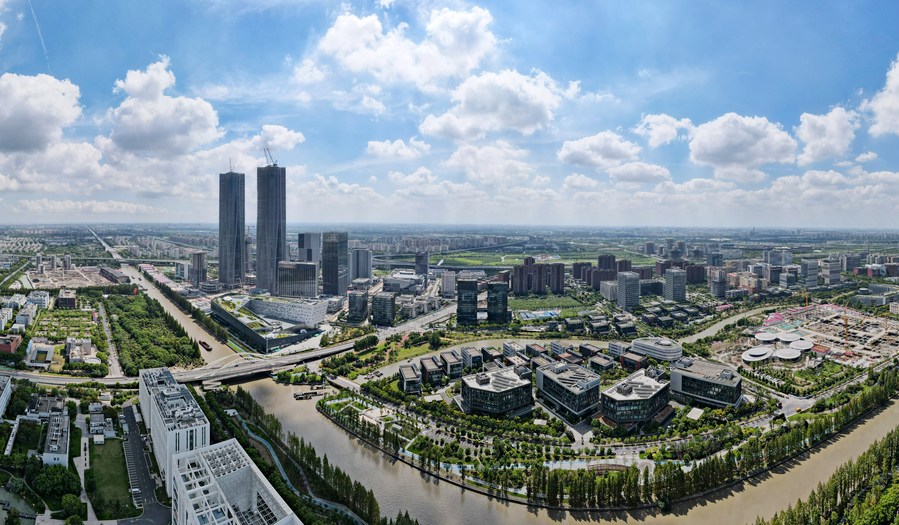Reform and modernization crucial for driving productivity, long-term growth

Reform and modernization were key takeaways from the communique issued at the third plenary session of the 20th Central Committee of the Communist Party of China, say experts from a think tank in the United States.
They also see reform and modernization as crucial to boosting productivity and long-term growth through technological innovation.
Guoguang Wu, a senior fellow on Chinese politics at the Asia Society Policy Institute's Center for China Analysis, said the Party is sending a "very strong signal to Chinese people and the international society that we will have reform".
READ MORE: CPC charts growth blueprint
Wu offered his observations on Friday at a webinar held by Asia Society, a think tank and nonprofit, titled "The Third Plenum: What is Xi Jinping's Plan for China?"
Lizzi Lee, a fellow on Chinese economy at the ASPI's Center for China Analysis, said the emphasis of the third plenary session was on Chinese-style modernization, including emphasis on technology innovation and new quality productive forces.
The plenary session also highlighted challenges such as income inequality, trade tensions and fiscal issues and noted strategies to address those issues through supply chain policies, market roles and financial reforms.
Lee highlighted two other points: self-sufficiency and major breakthroughs, especially in frontier science, which is "no surprise given the rising geopolitical tensions, particularly with the US".
She said the plan also emphasizes a dual role of State guidance and intense competition among private sector companies and entrepreneurs.
In its original text, the communique said: "We must better leverage the role of the market, foster a fairer and more dynamic market environment and make resource allocation as efficient and productive as possible. We will lift restrictions on the market while ensuring effective regulation, striving to better maintain order in the market and remedy market failures."
The government "will continue to provide guidance and support for industry supply chains, while the private sector drives growth and innovation", Lee said. That strategy has already been successful in the electric vehicle and battery sectors, and China plans to extend it to key areas such as semiconductors, medical equipment and machine tools, she said.
China has a major economic goal to lift per capita GDP to that of a mid-level developed country by 2035, and to reach that target, the economy would need to grow at about 4.5 to 5 percent annually, she said.
ALSO READ: Key economic tasks set out by leadership
China's economy grew by 4.7 percent in the second quarter of the year after a 5.3 percent growth in the first quarter, according to the National Bureau of Statistics.
Bert Hofman, an honorary senior fellow on Chinese economy at the ASPI's Center for China Analysis, said the communique is "about high-quality development, the high-standard socialist market economy as being the tool for this Chinese modernization".
Consistent policy
Hofman saw a consistent policy on the supply side. The policy is about significantly increasing investment in science and technology and integrating it with industrial policy, he said. The goal is to use various tools to link current and future technologies with high-quality productive forces.
Hofman said one of the most important points of the third plenum is the reaffirmation of a key principle acknowledged by the third plenary session of the 18th CPC Central Committee in 2013: that the market plays a decisive role in allocating resources.
He said he believes the government-market balance is even stronger than in 2013. Although this principle was not mentioned in the communique, it is reiterated in the resolution, emphasizing the need to leverage the market's role, he said.


